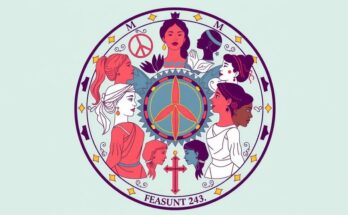Intensifying Crackdown on Human Rights
In 2024, Afghanistan’s landscape darkened further as the Taliban escalated their repression of human rights, particularly targeting women and girls. Afghanistan uniquely stands as the sole nation forbidding females from secondary and university education, while simultaneously enforcing rigid constraints on their employment, mobility, and freedoms. This pervasive crackdown included the detainment of journalists and critics, coupled with draconian media restrictions.
Women and Girls Under Siege
Taliban regulations have stripped women and girls of their rights to education, employment, and freedom. The dismantling of safeguards against gender-based violence leaves vulnerable women without critical support. With oppressive mandates like requiring women to travel only in the company of a male guardian and cover their faces in public, female autonomy continues to be systematically crushed. Reports indicate alarming instances of physical violence against those unable to comply with the dress code.
Humanitarian Crisis Deepens
Over 23.7 million people in Afghanistan required immediate humanitarian assistance in 2024, with over 12 million facing severe food insecurity. The drastically reduced foreign aid has crippled the healthcare system, intensifying malnutrition and lack of medical care, especially impacting women. The ban on female healthcare workers further exacerbates the suffering of those in need, revealing a health crisis intricately tied to gender discrimination.
Harsh Repressive Measures
United Nations reports unveiled a grim picture, with the Taliban committing arbitrary arrests and torture, including against former government officials. Reports confirm that nine members of the earlier security forces were executed, while forced returns from Pakistan subjected many to maltreatment. Public floggings have resulted in extreme corporal punishments for many individuals, illustrating a brutal disregard for human dignity and justice.
Suppression of Free Expression
The Taliban relentlessly stifled freedom of expression and the media, resorting to detaining journalists for their critiques. In a clear effort to control narratives, live broadcasts of political discussions were banned, limiting interviews to a pre-approved list. Various media workers faced arbitrary arrests and lack of legal representation, amplifying fears of censorship and silencing dissent.
Refugee Crisis Looms
The repatriation of over 665,000 Afghan refugees from Pakistan has created dire circumstances in Afghanistan, where many face dire economic conditions and lack essential services. Despite attempts at family reunification in the UK, many Afghans are left stranded in precarious situations across various countries, unable to find sustainable resettlement pathways.
Rising Violence Against Civilians
Attacks from the Islamic State Khorasan Province (ISKP) added a layer of danger for many in Afghanistan, particularly affecting the Hazara community. Targeted assaults, including massacres and suicide attacks, created a pervasive atmosphere of fear, further compounded by cross-border conflicts resulting in civilian casualties.
Quest for Justice
In light of ongoing abuses, the UN has stressed the necessity for accountability amid long-standing impunity for human rights violations in Afghanistan. In 2024, little progress was made concerning war crimes charges against military personnel. A multinational initiative seeking accountability for the Taliban’s systematic discrimination could set a significant precedent, representing a pivotal moment in justice for Afghan women.
– Taliban intensified repression of women’s rights and freedoms in 2024. – Over 23.7 million people needed humanitarian aid; women disproportionately affected. – Significant media restrictions and arbitrary arrests of journalists documented. – Rising violence from ISKP targeted ethnic and religious minorities. – Efforts for international accountability initiated by several countries.
In summary, Afghanistan faces a dire human rights crisis marked by systemic oppression, particularly against women and girls, amid a humanitarian disaster. The Taliban’s actions have dismantled essential freedoms while exacerbating economic and health challenges. The rising violence from extremist groups further complicates the dire situation, underscoring the urgent need for international attention and accountability efforts.
Original Source: www.hrw.org



